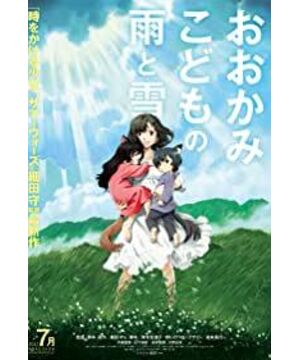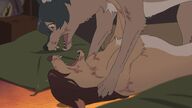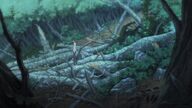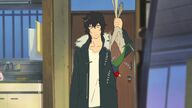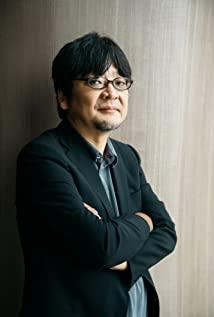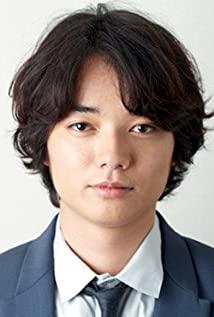I personally think that the movie Hosoda Mamoru, whether it is the bizarre view of time and space in "The Girl Who Leapt Through Time", or the bizarre of games like "Summer Day", or the bizarre of the man-wolf in "The Son of Wolf Rain and Snow", In the end, they all returned to the lives of the Japanese. What has changed is the background and worldview, but what has not changed is the praise of the simple Japanese.
I vaguely remember how a Japanese family was the elder of the family in "Summer Fight"-when she died, she continued to fight together under her legacy. In "Son of Wolf Rain and Snow", I also especially remind everyone to pay attention to such a little flower that seems to be the corner of the old "suffering mother" and the simple folks around her when she was in the countryside. Compared with the frequent complaints, blames, and accusations of urban people living in small apartments, rural people living in large rural houses have obviously become more open-minded. What they value is not your money and status, but whether you have the perseverance and courage to persevere.
I also especially remind everyone to pay attention to the Japanese campus described in the film. For example, at the beginning of the film, the place where Xiaohua and her boyfriend met was actually Hitotsubashi University, my alma mater in Japan. This is an old school with a history of more than 100 years. It is characterized by economics and business. The buildings are simple and modern on the outside. There is a plot that especially evokes my memory. The film deliberately arranged a scene from inside the school building to look outside the building. Some mothers played with their children there. A young child who was just walking fell down. His mother helped him up. Hitotsubashi University is like this. Although it is not big, many ordinary citizens around it come to take a walk and rest every day. It is not an ivory tower enclosed by a high wall, but a community close to society and life. There are some housewives in Japan whose husbands go to work during the day, and they take their children to school for a walk. Although Xiaohua later took the children by herself like these mothers, but obviously she has no support from her husband, so bringing children is not such a happy thing. In addition, although the film's description of Japanese elementary schools could not be more ordinary, it is enough to cause us to think deeply. Such as the solemn entrance ceremony, emergency handling in the face of emergencies and so on. Of course, there is a contrast montage depicting Xiaoxue and Xiaoyu studying at school at the same time, which is wonderful!
Although Japanese from Miyazaki Prefecture think Miyazaki is the most beautiful, I think the scenery in Toyama Prefecture, Japan may be more beautiful. In particular, the scenic view of the famous waterfall, the first waterfall in Japan, described in the film, is located in Tateyama Town, Toyama Prefecture. Of course, within the peaks of Tateyama, there are Toyama's famous tourist spot Murododaira, and the mountain top Hirako "みくりが池", these natural scenery are faithfully reflected in the film. What’s interesting is that in the middle of the film, when Xiaohua and Xiaoyu came to the deep mountains for the first time, the named waterfall was shaped into the depths of the mountain and had to go through many difficult climbs to reach; but by the end of the film, the waterfall was Set to be able to be seen from the foot of the mountain, Xiaohua felt relieved and contented in the face of Xiao Yu who indulged in the waterfall. This may be an understandable "contradictory" treatment.
Let's turn our attention back to Xiaohua. She made me want to have such extravagant hopes, if I had such a wife...
Anyone who has watched "The Wooden Cabinet Boy" must be impressed by the old wooden cabinet with six magical boys in it. Her mother gave her such a wooden cabinet and hoped that she could grow up quickly with the help of the wooden cabinet. It is also a story about how a girl becomes an outstanding security person—a mistress who can properly handle housework and manage the family. She also has a wooden cabinet. The symbolic value and significance of the wooden cabinet to the family in Japanese culture is beyond words. The wooden cabinets of the two films are also surprisingly the same in terms of specifications-a five-story structure, with one drawer on each of the four floors below, and two drawers on the top; I'm afraid this is not a simple coincidence.
If the film chooses the werewolf as the representative of the imaginative element of animation, there are two advantages. The first is that when the audience sees children and coyotes who frequently change their appearances, they will have a special sense of interest; the second is that a werewolf means two paths in life, whether to become a wolf or to be like a father The same person who integrates into society. Two children, two genders, two personalities, two life paths. When we are feeling the choices of life paths that different genders and personalities are more inclined to accept, in fact, we should be even more emotional that as their mother, Xiaohua, there is only one life path. When her husband, her daughter, and her son can actively choose their own path in life, she can only choose a path for a mother to carry all the burdens of life and devote all to the growth of her child.
On the basis of this kind of sentiment, to understand the part of the film in the middle of the film between Xiaohua and Xiaoyu, Xiaoxue running on the snow, the rare sense of release, and the physical and mental fatigue when Xiaohua fell from the cliff and her husband appeared in her consciousness at the end of the film. The sense of sudden relief is directly to the heart and lungs. For a moment, she really wanted to die like this and find her husband, but the sense of responsibility of a great mother finally allowed her to get rid of this slight slack and return to reality. She obviously did so much for Xiao Yu, but she still said that she hadn't had time to do anything for Xiao Yu. What kind of mother was this.
As the film progresses, several interesting topics are actually set up: the contrast between the cowardly personality of boys and the bold personality of girls is strong, and there is a discrepancy with their gender. Will it change later? Will anyone else discover the secret of the werewolf? How to extend the life path of the two children is a question that Xiaohua's mother always asks, how did the werewolves grow up? Most of the question videos are answered very well, full of suspense, making you wonder what will happen, and reasonable. But I personally feel that there is a question that I am very concerned about. The film did not answer at the end, that is, Xiaohua has always been afraid that someone will know the children’s secrets. The core is fear that the children will be discriminated against. I think the film will eventually expose this matter to a small area. This kind of discrimination occurs, and then give Xiaohua a space to solve this kind of discrimination dilemma, thereby completely changing the social attributes of werewolves. But the film did not do this, of course the ending of the film is sufficiently complete.
View more about Wolf Children reviews


